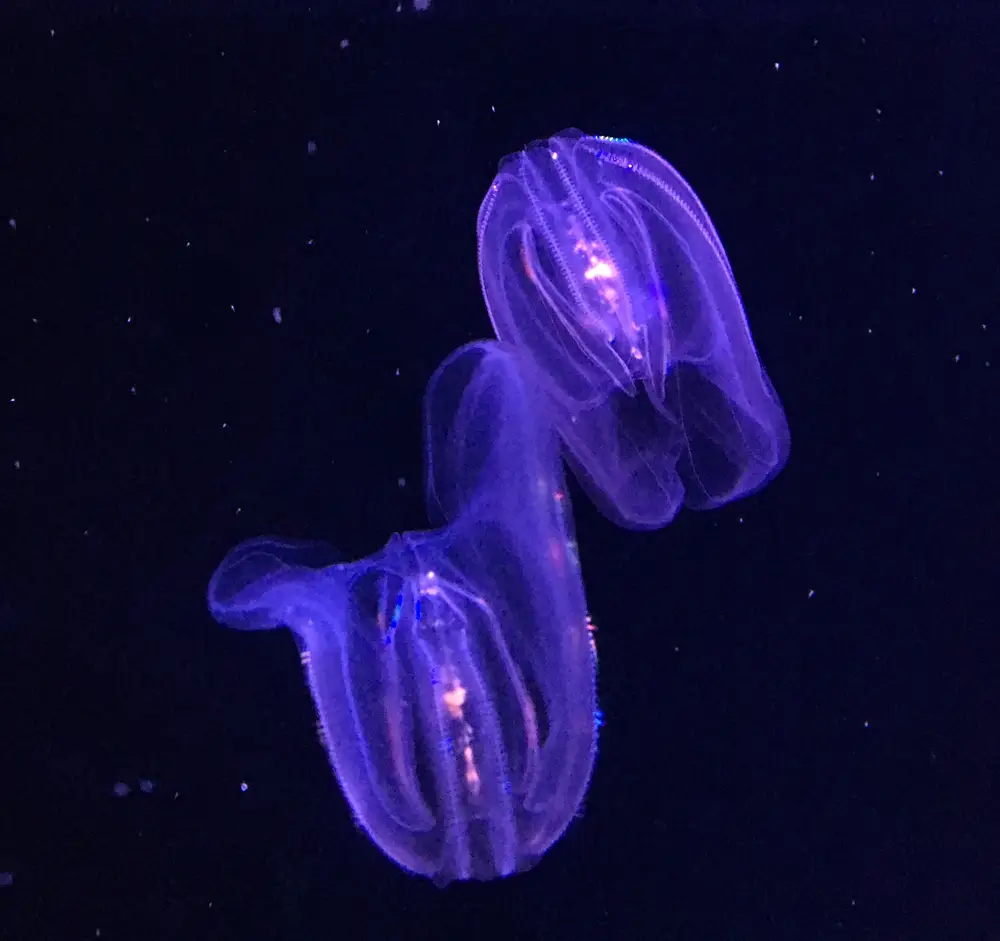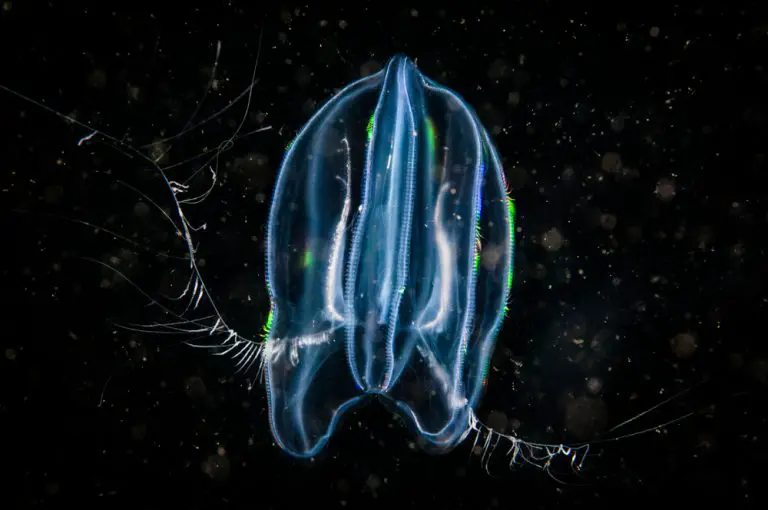Scientists have discovered that the comb jellyfish (Mnemiopsis leidyi) may have the ability to reverse its aging process, effectively “time traveling” to a younger state. This species, often found along the eastern coasts of the Americas, can transition from its adult medusa form back into a larval stage when exposed to stress such as starvation or injury. The discovery, detailed in the Proceedings of the National Academy of Sciences, challenges previous understandings of life cycle plasticity and raises questions about how widespread this ability might be in the animal kingdom.
Dr. Joan J. Soto-Angel from the University of Bergen first noticed the jellyfish’s unusual behavior when an adult specimen seemingly vanished, leaving behind what appeared to be a larva. After conducting experiments, researchers confirmed that the larva was, in fact, the same creature reverting to an earlier stage of its life. Over weeks, the jellyfish not only reshaped its body but also adopted the feeding behaviors typical of its juvenile stage.

This remarkable adaptation is being compared to the “immortal jellyfish” (Turritopsis dohrnii), another species known for reversing its aging process. Scientists believe these findings could offer new insights into early animal development and the mechanisms behind rejuvenation.
The discovery has ignited excitement among researchers, with Dr. Soto-Angel calling the process “fascinating” and likening it to witnessing a creature travel back in time. It marks an important breakthrough in understanding biological aging and adaptation.




